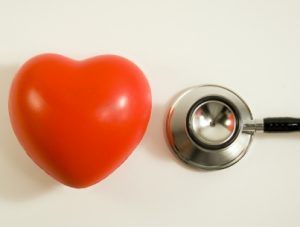How To Know When To See A Doctor For Anorexia
 Contrary to popular belief, signs of anorexia aren’t always visible from the outside.
Contrary to popular belief, signs of anorexia aren’t always visible from the outside.
It’s possible for a person to be at a seemingly normal weight and not display obvious clues that an eating disorder is present.
Yet anorexia is almost always cause for professional treatment, and this includes seeing a physician.
How do you know when it’s time to see a doctor?
The following guidelines can be helpful in determining when professional help is necessary.
Emotional or mental symptoms
While changes in eating patterns can be a normal response to stress, major life changes, hormones or other factors, anorexia usually comes with emotional and mental symptoms, too. These can include distorted beliefs about what constitutes healthy eating, negative body image, hypervigilance around food, loss of control around food or severely restrictive eating habits.
The anorexic person may also be extremely afraid to gain weight or feel the need to exercise obsessively.
If these symptoms persist longer than what might be considered circumstantial (to change, stress, etc.), it’s best to see a doctor.
Physical changes
The physical changes that often accompany anorexia usually require medical attention as well.
These changes can include rapid weight loss, inability to stop losing weight, vomiting, bingeing, purging, protruding bones or ribs or missed menstrual periods, in females.
Sometimes these physical symptoms may not be extreme, but it is still important to see a doctor – as they can rapidly get worse or lead to more serious health complications.
Dangerous warning signs
Anorexic behaviors, if left untreated, can lead to harmful outcomes and even death.
A doctor should be contacted immediately if you exhibit any of the following symptoms: inability to pass urine, severe pain anywhere in the body (like the joints or torso), fainting spells, severe belly pain (which may mean there is digestive bleeding), vomiting or irregular heartbeat (when the heart is pounding faster or slower than normal).
Failure to seek medical attention when these symptoms are present could lead to a life-or-death situation.
In general, it’s never a good idea to use the “wait and see” approach if you’re concerned about yourself or someone you love. Your regular physician can help right away and refer you to other specialists if you need further treatment.
Source: Web MD
 Eating Disorder Self Test. Take the EAT-26 self test to see if you might have eating disorder symptoms that might require professional evaluation. All answers are confidential.
Eating Disorder Self Test. Take the EAT-26 self test to see if you might have eating disorder symptoms that might require professional evaluation. All answers are confidential.